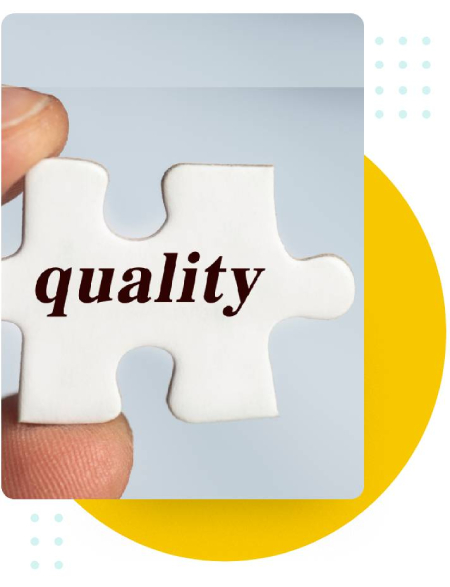In the 21st century, you will find many setups in the seemingly never-ending pursuit of a free inventory management software for small businesses.
Why is this the case? Why do all businesses feel the need to get their hands on inventory management software?
Well, for the most part, this is because of the many benefits of inventory management you can access, just with the help of a simple software solution.
In this section, we will discuss the most important aspects of an inventory management system for small business: from its benefits to the questions you should ask yourself before you invest in one, ending with the best possible pick of an inventory management software.
Benefits of Inventory Management Software for Small Business
In this guide, we have taken quite an in-depth look at the perks of inventory management, and how it can be leveraged to accelerate the success of a business. The truth is, inventory management can only become a core component of your success if it is done properly. In today’s time and age, as we continue to exist during an ongoing technological revolution, this can only be done if automation is not only implemented, but prioritised by your business. It is true that using technology should not only come into question for inventory management and in fact, should be a core value for your overall business. However, for inventory management, it is more or less necessary.
Against this backdrop, understanding the importance of inventory management software for small business is more convenient and graspable. An inventory management software helps you bring automation to the very centre of your inventory management processes, and single-handedly elevates your business to the next level of success – which is why it is a more or a less a requirement for your operation as a small business.
Want to outshine your competitors? An inventory management software will help.
Want to impress your customers? An inventory management software is the answer.
Want to improve your sales? Turn to inventory management software!
It is not an exaggeration when we say that many problems that you face as a small business can be fixed when you look at the roots of your set: your inventory and warehouse. By improving your processes at this level, you can easily transform the trajectory of your business overall.
Some benefits that an inventory management software for a small business can provide you with include:
Reduced costs
As we mentioned in the discussion of the importance of inventory management for a small business, one of the biggest aims for any business is to spend as little money as possible. This is because the less money you spend means the more you can expect your return-on-investment to be. Luckily, this is one of the biggest advantages of an inventory management software for small business!
Since the software is aimed towards improving the order and accuracy of your inventory processes, you don’t get to make a lot of mistakes. When there are only a few errors in your processes, it means that you don’t have to spend a lot of money fixing them. In fact, with an inventory management software, you can more or less say goodbye to damage control as a whole.
An inventory management software also proves to be useful in terms of optimising your storage space. The better optimised your storage space is, the less money you have to spend on the storage of unnecessary items that are adding no value to your business. Thanks to the cutting-edge technology used in a good inventory management software, it is quite easy for you to know what the right quantity of stock is, and therefore you will only be investing in as much as you need – nothing more, nothing less.
And lastly – speed. We have stressed on the importance of speedy inventory management processes quite a few times in this guide, and that is mainly because saving time also means that you are saving money. End-to-end automation means that you are completing all the necessary procedures quite quickly (and also that you are not engaging your labour as much), which means you are doing a favour to your pockets. Who wouldn’t want that?
More accuracy
At this point, you probably already know just how important it is to maintain an accurate record of your inventory – an accurate inventory is the best inventory! Sadly, many businesses, especially retailers, neglect this aspect and don’t have an accurate inventory. The problems in inventory accuracy can be quite damaging.
This is why inventory tracking is such a big deal. It allows you to keep a better check on your inventory activity and see that things are going the right way. And this can only be done with the help of inventory management software.
An inventory management software not only decreases the amount of inventory a company has to keep on hand, but it also improves order accuracy. This allows a small business to save a lot of money, effort, and other resources! With all the data it gathers, an inventory management software can help you understand exactly how much you need to increase your sales, which means that you can finally eliminate the guesswork. This is why many businesses that rely on inventory accuracy and efficiency can even close down a warehouse or two, because they simply don’t need all that extra space anymore!
Improve data visibility and planning
Making data-based decisions is important for any business operating in the 21st century. Thanks to inventory management software for small businesses, this is not hard. They work with a considerable amount of business intelligence, which means that there are many benefits that you can get for your business with a simple software solution.
Using features like barcode scanning and batch tracking, you can easily build data assets that can late be used to improve other areas within your business. If you use the right inventory management software and configure your processes just the right way, you can easily answer important questions like which products are your most popular products and which customers are the ones you need to focus on the most. It can also help you gauge customer demand a lot better, which helps with forecasting, so it is a win-win situation overall.
Remember that if you are trying to take over your competitors and establish yourself as the go-to option for your customers, it is necessary for you to introduce business intelligence to your core processes like inventory management. In fact, the data you get from inventory management and other similar processes like warehouse and order management, can ultimately also be of use to, say, the marketing team. Therefore, it is important!
Better customer service
Your customer is your key to success. The more your customer trusts your business, the more chance you have to stay in the game for a longer run. However, the customer of today is not easy to impress. They are used to top-notch technology, fast customer service, customisation, and convenience of all sorts. This means that even a small discrepancy in your processes that is reflected in the customer experience you provide can lead to you losing that person’s business forever.
Yet, this can be avoided with the help of inventory management software. As discussed, inventory management software brings seamlessness, consistency, and efficiency to your work processes. It means that no longer do you have to worry about the fulfilment procedure going the right way; since everything is automated in a holistic manner, you can rely on cutting edge technological solutions to do all the work.
Fortunately, relying on automation and AI for these aspects means a speedier, optimum fulfilment procedure that your customers can simply not refuse!
With these benefits (and many more), an inventory management software becomes a necessity for any small business. When picking the inventory management software of your choice, you have to check whether or not it provides these benefits (the best inventory management software for small businesses always will!)
Best Inventory Management Software for Small Business
All businesses need inventory management software, but for small businesses, it is a necessity. This is because if you want to compete against your bigger, more successful counterparts, you have to achieve operational efficiency in the area of inventory management – and you can only do that if you have the support of an advanced inventory management software for small business.
When it comes to the best inventory management system for small businesses, there are quite a few options you can turn to. However, there is none better than Canary7.
Canary7 is the latest and the best inventory management software for small businesses. It has been planned and designed to support the unique needs of small businesses: it improves efficiency, reduces costs, and helps you increase your profits without putting in a lot of effort.
The best thing about Canary7 is that it is not just an inventory management solution. It is also the best software option for warehouse management, warehouse control, order management, and labour management. As such, you can merge all these important aspects of your supply chain together and create an experience that is easy for you to create, but hard for your customers to forget!
With Canary7, you can finally turn your inventory management from a nightmare into a seamless, optimised process that solidifies the success of your business. It is easy to understand and implement, and can be used by everyone: you, your managers, and your warehouse operatives.
If you are looking to stay in touch with your inventory activity, identify gaps of improvement within the inventory management processes, and transform the entirety of inventory and warehouse handling: Canary7 is the best option.
So, what are you waiting for? Book a demo for our inventory management software for small businesses completely free of cost, and see what we are talking out!













